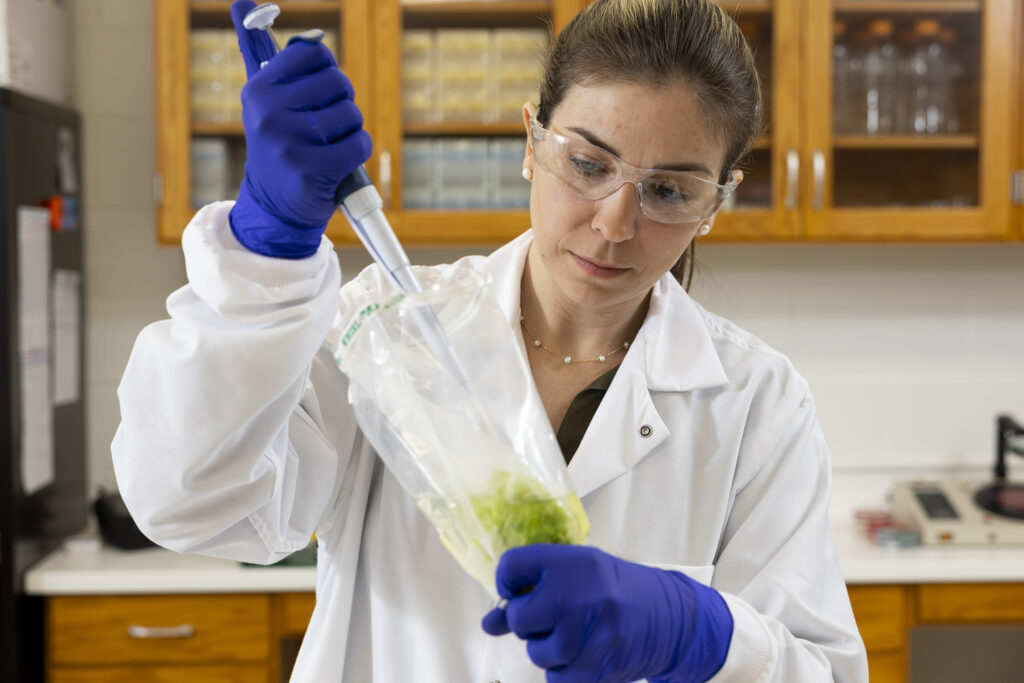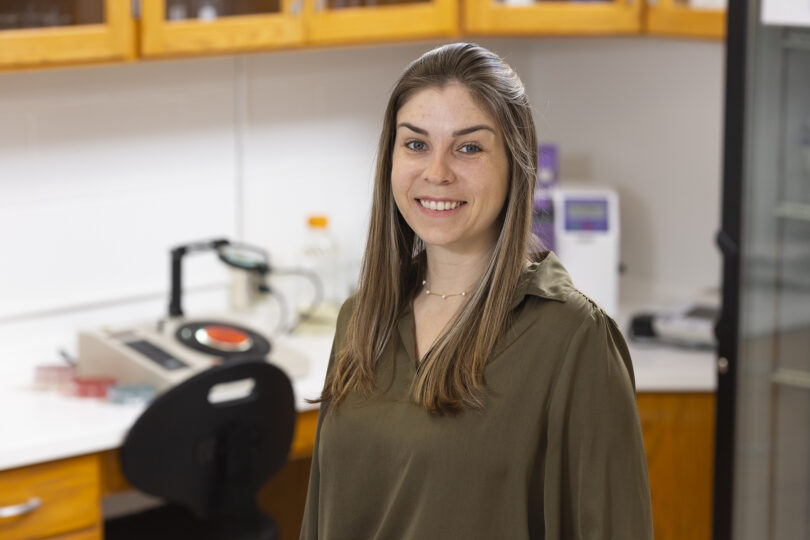She didn’t realize it at the time, but Carla Schwan’s passion for food microbiology began in a hospital bed in rural Brazil.
Just 12 years old at the time, Schwan’s predicament began with what she originally thought was just a stomachache from an undercooked hamburger.
When her condition worsened, doctors eventually realized she had ingested contaminated beef that led to a potentially lethal bacterial infection called Shiga toxin-producing E. coli.
Within days, her kidneys began shutting down. Dialysis and antibiotics saved her life, but the experience created permanent damage.
Years later, Schwan was diagnosed with Crohn’s disease, likely linked to that childhood ordeal, and now takes regular infusions to ward off the autoimmune disease.
“I recovered, but my stomach was never the same,” she said.
Schwan’s life took an interesting and ironic turn in college when she began studying food science, a passion born largely out of her experience as a child.
That eventually led her to graduate school in the United States, where she ended up in a lab studying the pathogen, Shiga-toxin producing E. coli, that nearly killed her.
“I don’t know how to describe the feeling, but it was like, now I’m going to really learn about you,” she said with a laugh.
After completing both her master’s and doctoral degrees in food science at Kansas State University, Schwan was hired as an assistant professor and UGA Extension food safety specialist in the College of Family and Consumer Sciences in 2022.
The granddaughter of farmers, Schwan’s introduction to food education began in childhood, traveling across soybean-rich southern Brazil in the summer with her father, also an Extension professor in agronomy.
“That helped give me a foundation with the examples I saw around me and that was a big influence,” she said.
As director of the National Center for Home Food Preservation (NCHFP), a repository for research-based information housed within FACS, Schwan handles inquiries from both the media and the public on all issues related to food safety.
The NCHFP website averages about 200,000 hits a week, a lot of the traffic and inquiries driven by consumers’ interactions with recipes and methods they see on social media.
“There are some really beautiful photos and recipes attached to those photos, but they’re not necessarily safe,” she said.
Those inquiries, along with feedback she receives from FACS Extension agents fielding questions from consumers across the state, help Schwan stay current on the latest food trends and inform her work in the lab.
“If I didn’t have these pieces of Extension, I wouldn’t be able to be most efficient in the lab,” she said. “You can read literature all day long, but really it’s the people in the communities who are telling you what they need from you.”

Carla Schwan gathers a sample from lettuce to test for bacteria in her lab at Dawson Hall. (Photo by Andrew Davis Tucker/UGA)
Schwan often recounts her childhood experience when discussing the importance of proper techniques with consumers.
“I think as humans we all like stories,” she said. “If you have a story attached to something, especially scientifically, it’s easier to comprehend. Being able to tell a story and combine the research side of things is a great way of communicating to the general public that might not be as interested in the research or the toxin and how it reproduces and all that.”
The feedback she has received from her work has helped fuel her passion, she said.
For the last two years, Schwan has received hand-written thank you letters from a New York resident who frequents the NCHFP website for information related to canning food from his small garden.
He sends photos of his garden and the jams and jellies he has canned using the NCHFP guidelines, along with pictures of his grandkids with their favorite vegetables.
“Those moments really remind me why I’m here and why it’s worth doing what I do,” she said. “It’s just really special to see when you have that kind of feedback and to know people are using the information we provide.”








